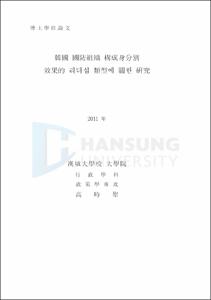韓國 國防組織 構成身分別 效果的 리더십 類型에 關한 硏究
= A Study on the Effectiveness of Leadership Styles for Each Rank in Korea's National Defense Organization
- Files in This Item:
-
-
Download
 000000896195.pdf
기타 데이터 / 996.17 kB / Adobe PDF
000000896195.pdf
기타 데이터 / 996.17 kB / Adobe PDF
-
Items in Repository are protected by copyright, with all rights reserved, unless otherwise indicated.